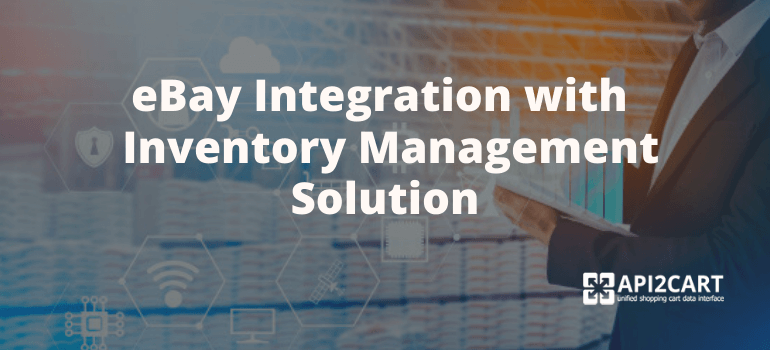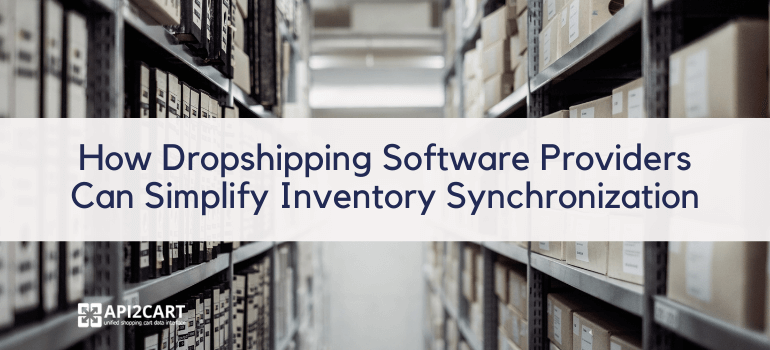
For e-retailers, an inventory management API offers a chance to get more control over inventory and stock up in accordance with orders. To execute these primary responsibilities, inventory software needs to have insightful data. It must include information about e-store product units, clients, and orders. The software also requires many more action-based data points. This information is usually stored in various eCommerce platforms. For such systems, therefore, it’s vital that there be seamless integration with shopping platforms and marketplaces.
According to statistics, the global inventory management software market was valued at USD 2.51 billion in 2025. It is projected to grow to USD 2.75 billion in 2026. Furthermore, the market is expected to reach USD 5.52 billion by 2034. Overall, it is forecast to grow at a CAGR of 9.13% during the projected period. North America dominated the global market with a share of 35.01% in 2025.
The majority of inventory management software use API for integration with other apps. Through API, it will be possible to retrieve or process data from external sources from other eCommerce platforms.
In our article below, we will explore the process of inventory management API integration with some popular eCommerce platforms like Magento, Shopify, PrestaShop, and so on.
What is an API and Why is It Important?
API is important in modem software development and is applied in various services and applications.
Benefits of Using APIs:
- Integration: Through APIs, it is possible to connect and exchange information with other systems in order to be connected and extend the application under consideration
- Reusability: This is because there are available APIs which developer can use and therefore, they do not have to start everything afresh
- Modularity: API enables modular development. One advantage of the API is that it supports independent development of various sections of the system. This is possible if the developer’s work meets the requirements of the API
- Security: APIs can be utilized to restrict access to sensitive data from external domain’s unwarranted application services which might have otherwise been a breach
What Is Inventory Management API?
eCommerce platforms' inventory management APIs give software developers the opportunity to access and manage e-store inventory API data. These APIs help e-retailers maintain their stock levels. They also allow monitoring of product availability. In addition, they improve supply processes.
Key Functions of Inventory Management APIs:
- Product Information: The APIs allow developers to fetch product information such as title of the product, its description, price, and stock quantities
- Stock Updates: With respect to individual products or variants of a product, developers can alter or adjust the number of stocks
- Inventory Tracking: Through these APIs, developers are able to track the movement of goods, follow stock levels across many different sites and gather information on product stocks
- Out-of-Stock Alerts: In some cases, APIs inform companies of nearing stockouts through alerts and notification before it happens for such firms to restock their goods
- Bulk Operations: Many inventory management APIs support bulk action that enables companies to modify stock levels on several goods within one shot
Why Does Inventory Management Software Require Integration With eCommerce Platforms?
Inventory management software often requires integration with eCommerce platforms for several important reasons:
- Real-Time Inventory Updates: Integration guarantees the synchronization of the inventory management software and the stock levels in the eCommerce platform
- Order Fulfillment Efficiency:An integrated inventory management software program is connected to the eCommerce platform. It updates itself after each sales order. This enables businesses to keep track of accurate stock levels at any given time. It enhances order fulfillment, has less manual data entry, and decreases the chances of shipping delays or stockouts
- Multi-Channel Sales: There are several channels through which most businesses can sell their products, such as in-house, marketplaces, such as Amazon, eBay, and brick-and-mortar. The inventory software integrated with different eCommerce platforms makes it possible. Thus, e-retailers can manage inventories at any channel by using one center. It balances the quantity of items for sale in different selling places, such as online and offline shops, thereby eliminating an oversupply situation
- Data Accuracy: Moreover, integration ensures elimination of the occurrence of errors and inappropriate entries
- Scale and Growth: Integration is crucial for inventory software businesses looking to scale and grow. The more integrations such solutions support, the more customers it can have
How To Use API2Cart for Easy eCommerce Integration Development?
With a hundred satisfied large companies and numerous developers, API2Cart offers a unified API that allows eCommerce software to integrate with 60+ eCommerce platforms and marketplaces, including Shopify, Magento, WooCommerce, BigCommerce, Etsy, Wix, Lazada, Flipkart, Temu, Shopee, TikTok Shop, and others, at once - all through a single integration.
Inventory software integration with eCommerce platforms via API2Cart will let you receive the data on and about e-store items offered for sale. API2Cart provides 100+ API methods enable eCommerce software to add, update, access, manage, and synchronize inventory data and other essential store data, such as orders, products, customers, categories, shipments, and more, across multiple platforms.
Usage of API2Cart API methods allows your inventory software to perform the following operations:
-
Tracking and importing new e-store orders from various shopping platforms into your system
order.list.method – get a list of orders with filters (e.g., by date or status); order.info.method – retrieve detailed information about a specific order. -
Updating orders on all e-retailer sales channels from one place
order.update.method – update order status or details; order.shipment.add.method – add shipment information for an order. -
Synchronizing inventory levels across different platforms
product.list.method – retrieve product catalog with stock data; product.update.method – update product quantity, price, or stock status. -
Retrieving order updates and notifying your customers in no time
order.list.method – get orders with filters for recently updated ones; order.status.list.method – retrieve a list of order statuses supported by the store. -
Providing your clients with detailed reports and statistics
order.count.method – count orders based on filters (e.g., by status, date); customer.list.method – get customer data for analytics and reporting.
Here is how the response structure of order.list method for eCommerce integration looks like:
{
"return_code": 0,
"return_message": "string",
"pagination": {
"previous": "string",
"next": "string",
"additional_fields": {},
"custom_fields": {}
},
"result": {
"orders_count": 0,
"order": [
{
"id": "string",
"order_id": "string",
"basket_id": "string",
"channel_id": "string",
"customer": {
"id": "string",
"email": "string",
"first_name": "string",
"last_name": "string",
"phone": "string",
"additional_fields": {},
"custom_fields": {}
},
"create_at": {
"value": "string",
"format": "string",
"additional_fields": {},
"custom_fields": {}
},
"currency": {
"id": "string",
"name": "string",
"iso3": "string",
"symbol_left": "string",
"symbol_right": "string",
"rate": 0,
"avail": true,
"default": true,
"additional_fields": {},
"custom_fields": {}
},
"shipping_address": {
"id": "string",
"type": "string",
"first_name": "string",
"last_name": "string",
"postcode": "string",
"address1": "string",
"address2": "string",
"phone": "string",
"phone_mobile": "string",
"city": "string",
"country": {
"code2": "string",
"code3": "string",
"name": "string",
"additional_fields": {},
"custom_fields": {}
},
"state": {
"code": "string",
"name": "string",
"additional_fields": {},
"custom_fields": {}
},
"company": "string",
"fax": "string",
"website": "string",
"gender": "string",
"region": "string",
"default": true,
"tax_id": "string",
"identification_number": "string",
"alias": "string",
"additional_fields": {},
"custom_fields": {}
},
"billing_address": {
"id": "string",
"type": "string",
"first_name": "string",
"last_name": "string",
"postcode": "string",
"address1": "string",
"address2": "string",
"phone": "string",
"phone_mobile": "string",
"city": "string",
"country": {
"code2": "string",
"code3": "string",
"name": "string",
"additional_fields": {},
"custom_fields": {}
},
"state": {
"code": "string",
"name": "string",
"additional_fields": {},
"custom_fields": {}
},
"company": "string",
"fax": "string",
"website": "string",
"gender": "string",
"region": "string",
"default": true,
"tax_id": "string",
"identification_number": "string",
"alias": "string",
"additional_fields": {},
"custom_fields": {}
},
"payment_method": {
"name": "string",
"additional_fields": {},
"custom_fields": {}
},
"shipping_method": {
"name": "string",
"additional_fields": {},
"custom_fields": {}
},
"shipping_methods": [
{
"name": "string",
"additional_fields": {},
"custom_fields": {}
}
],
"status": {
"id": "string",
"name": "string",
"history": [
{
"id": "string",
"name": "string",
"modified_time": {
"value": "string",
"format": "string",
"additional_fields": {},
"custom_fields": {}
},
"notify": true,
"comment": "string",
"additional_fields": {},
"custom_fields": {}
}
],
"refund_info": {
"shipping": 0,
"fee": 0,
"tax": 0,
"total_refunded": 0,
"time": {
"value": "string",
"format": "string",
"additional_fields": {},
"custom_fields": {}
},
"comment": "string",
"refunded_items": [
{
"product_id": "string",
"variant_id": "string",
"order_product_id": "string",
"qty": 0,
"refund": 0,
"additional_fields": {},
"custom_fields": {}
}
],
"additional_fields": {},
"custom_fields": {}
},
"additional_fields": {},
"custom_fields": {}
},
"totals": {
"total": 0,
"subtotal": 0,
"shipping": 0,
"tax": 0,
"discount": 0,
"additional_fields": {},
"custom_fields": {}
},
"total": {
"subtotal_ex_tax": 0,
"wrapping_ex_tax": 0,
"shipping_ex_tax": 0,
"total_discount": 0,
"total_tax": 0,
"total": 0,
"total_paid": 0,
"additional_fields": {},
"custom_fields": {}
},
"discounts": [
{
"code": "string",
"value": 0,
"type": "string",
"additional_fields": {},
"custom_fields": {}
}
],
"order_products": [
{
"product_id": "string",
"order_product_id": "string",
"model": "string",
"name": "string",
"price": 0,
"price_inc_tax": 0,
"quantity": 0,
"discount_amount": 0,
"total_price": 0,
"tax_percent": 0,
"tax_value": 0,
"tax_value_after_discount": 0,
"options": [
{
"option_id": "string",
"name": "string",
"value": "string",
"price": 0,
"weight": 0,
"type": "string",
"product_option_value_id": "string",
"additional_fields": {},
"custom_fields": {}
}
],
"variant_id": "string",
"weight_unit": "string",
"weight": 0,
"barcode": "string",
"parent_order_product_id": "string",
"additional_fields": {},
"custom_fields": {}
}
],
"bundles": [
{
"product_id": "string",
"order_product_id": "string",
"model": "string",
"name": "string",
"price": 0,
"price_inc_tax": 0,
"quantity": 0,
"discount_amount": 0,
"total_price": 0,
"tax_percent": 0,
"tax_value": 0,
"tax_value_after_discount": 0,
"options": [
{
"option_id": "string",
"name": "string",
"value": "string",
"price": 0,
"weight": 0,
"type": "string",
"product_option_value_id": "string",
"additional_fields": {},
"custom_fields": {}
}
],
"variant_id": "string",
"weight_unit": "string",
"weight": 0,
"barcode": "string",
"parent_order_product_id": "string",
"additional_fields": {},
"custom_fields": {}
}
],
"modified_at": {
"value": "string",
"format": "string",
"additional_fields": {},
"custom_fields": {}
},
"finished_time": {
"value": "string",
"format": "string",
"additional_fields": {},
"custom_fields": {}
},
"comment": "string",
"store_id": "string",
"warehouses_ids": [
"string"
],
"refunds": [
{
"id": "string",
"shipping": 0,
"fee": 0,
"tax": 0,
"total": 0,
"modified_time": {
"value": "string",
"format": "string",
"additional_fields": {},
"custom_fields": {}
},
"comment": "string",
"items": [
{
"product_id": "string",
"variant_id": "string",
"order_product_id": "string",
"qty": 0,
"refund": 0,
"additional_fields": {},
"custom_fields": {}
}
],
"additional_fields": {},
"custom_fields": {}
}
],
"gift_message": "string",
"order_details_url": "string",
"additional_fields": {},
"custom_fields": {}
}
],
"additional_fields": {},
"custom_fields": {}
},
"additional_fields": {},
"custom_fields": {}
}
So, ready to simplify your inventory integration and eliminate the hassle of manual synchronization? Sign up for API2Cart and connect your eCommerce software with 60+ eCommerce platforms and marketplaces through a unified API. Retrieve, update, and sync products, stock levels, and orders without building separate integrations. Reduce development time, lower maintenance costs, and keep inventory data accurate in real-time.



